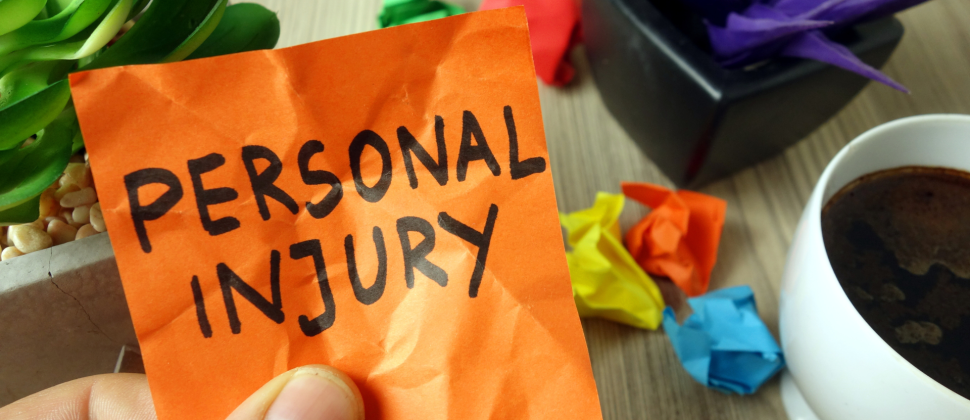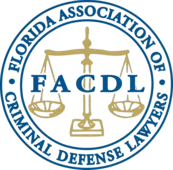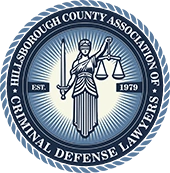Can Creditors Take My Personal Injury Settlement in Florida?

Receiving a settlement can be a much-needed relief after a personal injury case. However, you may have some concerns. Worries you may have could include “What taxes do I pay on settlement funds?” or “Can creditors take my personal injury settlement in Florida?”
How Paul Figueroa Law Can Help
Paul Figueroa Law can answer any questions you may have about the settlement process. Paul Figueroa has represented thousands of clients in both personal injury and criminal matters. He has worked with people at all levels of debt and can tell whether your settlement will be garnished.
Paul has been recognized for his legal skills. He has received the Extra Mile Award from the Florida Association of Criminal Defense Lawyers and is a two-time recipient of the Gideon Warrior Award from the 13th Judicial Circuit Public Defender. Paul Figueroa Law has the skills needed to help you get the settlement you deserve.
Florida Personal Injury Laws
Florida ranks as the state with the most personal injury cases per capita nationwide. There are 127.41 personal injury claims annually per 100,000 people. The increased likelihood of being involved in a personal injury claim makes it crucial to understand the settlement process.
In Florida, most personal injury settlements cannot be taken by creditors. There are some exceptions, but many damages are exempt. Several aspects of a settlement can further insulate the final sum from creditors. These include:
- Medical bills
- Disability
- Pain and suffering
Another important thing to keep in mind is keeping settlement funds separate from normal assets. If you mix the two, creditors can claim fraud, and you may have some money taken to pay debts.
When Creditors Can Take Settlement Funds
Florida statutes protect settlement funds from creditors. However, there are some specific conditions that allow creditors to take funds from your settlement. The following are the most common times when creditors may do so:
- Child support or alimony. If you owe money for child support or alimony, Florida statutes allow agencies to consider the full settlement amount when garnishing income.
- Property damage. Settlement funds that revolve around property damage can be accessed by creditors.
- Loss of income. Like property damage, this type of settlement payment can be garnished.
- Co-mingling assets. If you directly deposit the settlement amount into your normal bank account, creditors can potentially take from those funds. After the settlement is deposited, the assets are co-mingled and can be taken from.
- Government creditors. If your creditor is the IRS or another state or federal agency, they may be able to take some amount of your settlement to pay back what you owe.
Examples of Various Settlement Scenarios
Here are a few examples that may help clear up what creditors may or may not garnish:
- Full protection. In this example, a settlement is $60,000. The compensation is based on medical bills, effect on life quality, and pain and suffering. The injured party gets the full amount with no creditor’s percentage taken out.
- Some protection. For this case, the settlement is still $60,000. This time, only $30,000 was for medical bills, and the other half was for lost wages. The first half would be exempt from creditors, whereas the second half could be taken from in part to pay debts.
- No protection. In the final scenario, the $60,000 was based on property damage. The injured party has outstanding child support and government loans. In this instance, creditors take the full amount into consideration.
The amount taken when applicable is never a set number and can always change. In the final example, the creditors are not guaranteed to take the full amount. The only guarantee here is that they will consider the full amount when deciding what should be taken.
Hire a Personal Injury Lawyer
Balancing a settlement and paying creditors can be difficult. It can seem frustrating to be close to the end of your legal case and still have plenty of worries around the final sum. If you have not done so already, now is the time to hire a personal injury lawyer. Getting additional legal help can make a difference.
A personal injury attorney can help you avoid garnishment, if possible. They can help you keep your settlement funds separate. In the settlement process, they can push for certain damages in protected categories.
FAQs
Q: Can Personal Injury Settlements Be Garnished in Florida?
A: Personal injury settlements are often exempt from being garnished in Florida. Damages that are fully immune include settlement funds meant for medical bills, pain and suffering, and disability. If you owe the government, are behind on child support, or owe alimony, your funds may be garnished. Speak with a personal injury lawyer to understand the specific breakdown for your situation.
Q: How Much Will Creditors Take From Your Personal Injury Settlement?
A: There is no set amount that creditors can take from any personal injury settlement. They will look at whatever parts of your settlement, if any, they can take from to determine their fees. There is no set amount or percentage that creditors can take if you have unprotected settlement funds.
Q: What Can You Do to Protect Your Settlement Money?
A: The easiest way to protect your settlement money is to keep it separate from other assets. Mixing the two can be used as an excuse by creditors to accuse you of fraud. Being transparent with what funds come from the case can help you avoid any unwanted attention from creditors. Speak with a personal injury attorney to decide how to handle your assets.
Q: Do You Need a Lawyer for a Personal Injury Settlement?
A: While not required, a personal injury attorney can benefit both the amount and type of settlement you receive. An experienced lawyer knows which settlements are worth taking, which are not, and how to bargain during the process. Meet with an attorney for a consultation and discuss the details of your settlement.
Speak With a Personal Injury Lawyer Today
Contact Paul Figueroa Law today so we can learn your story and help with your personal injury case. You may also visit our Tampa office by appointment, located on Jackson Street just a few blocks from the Hillsborough County Courthouse.







